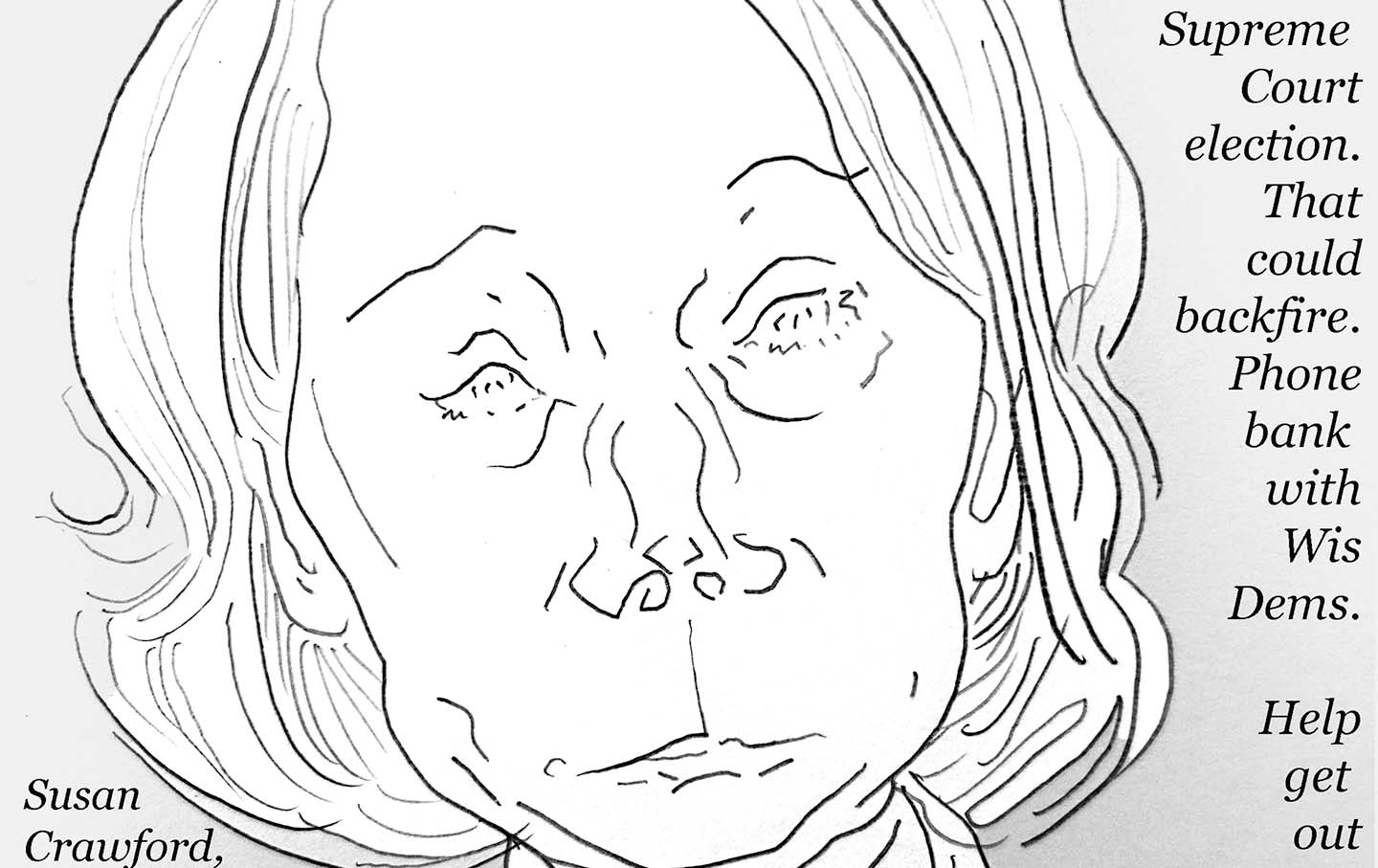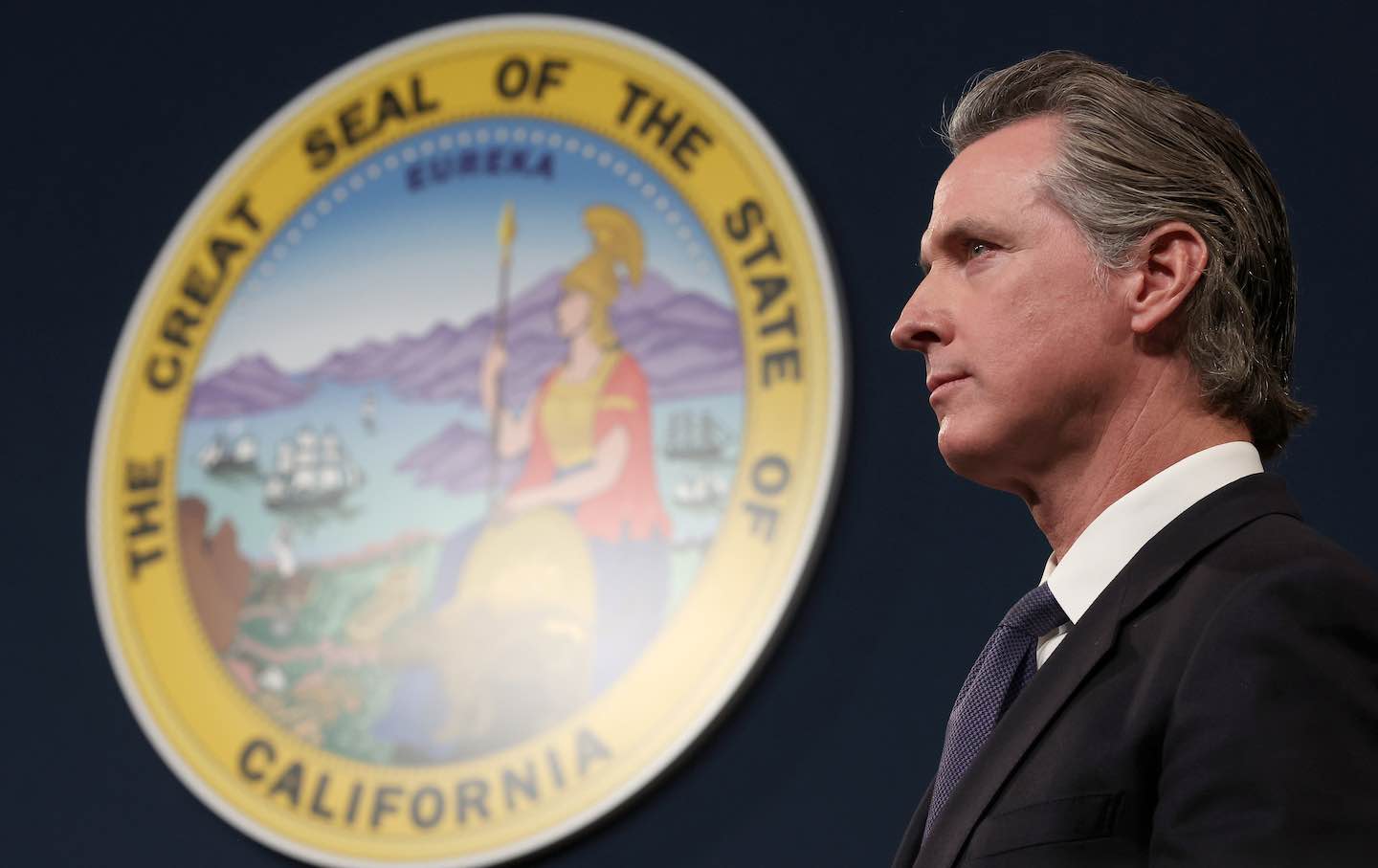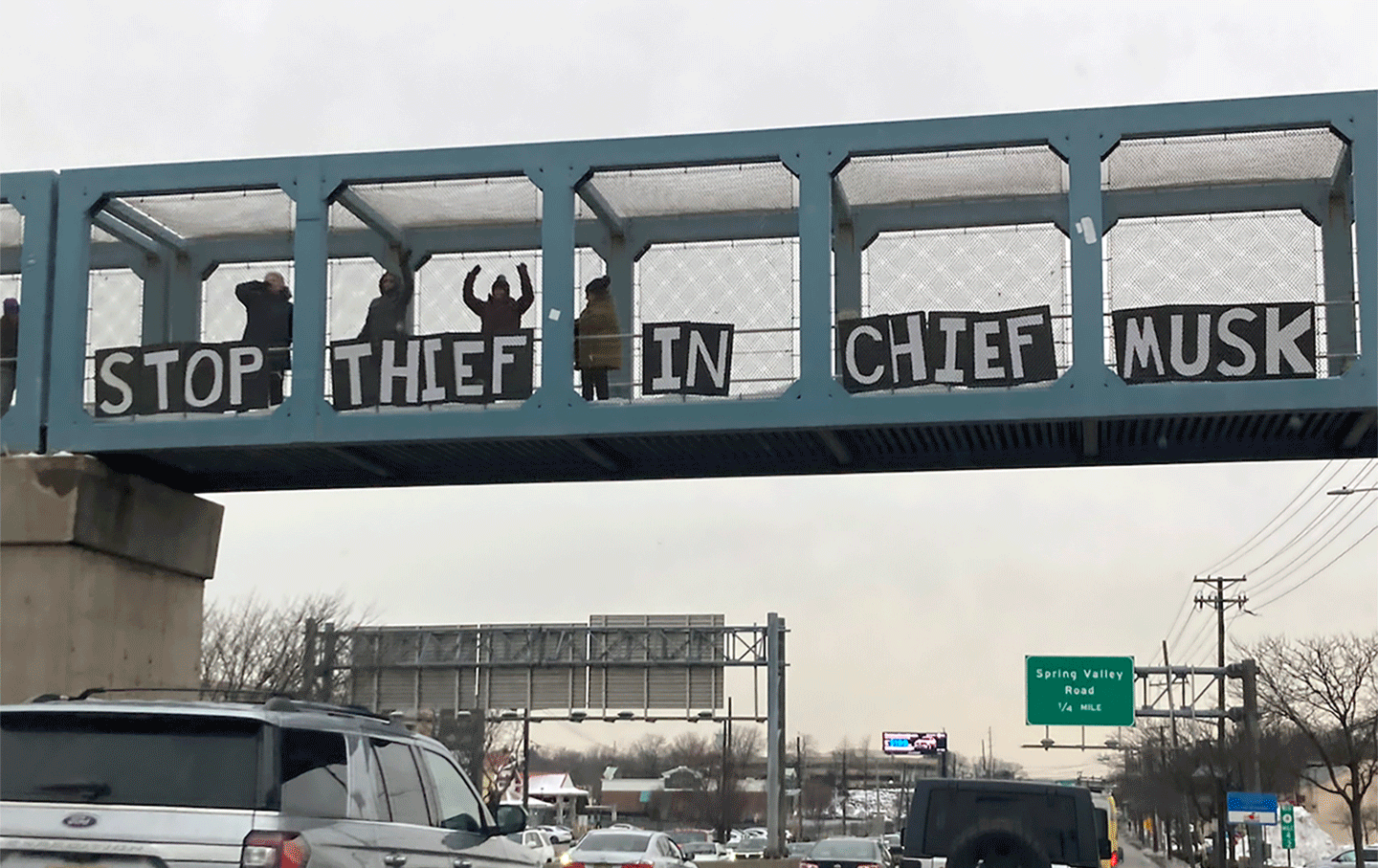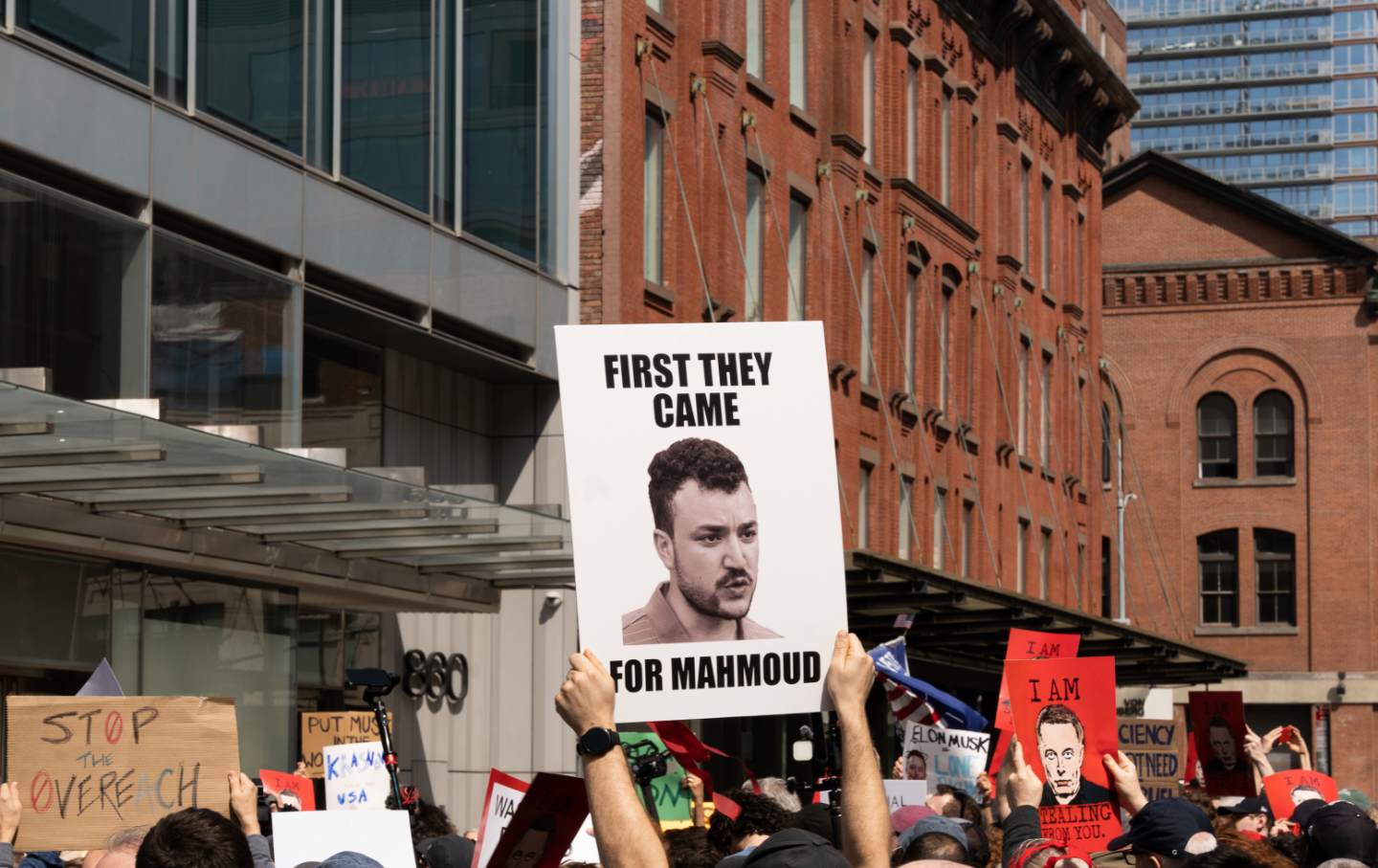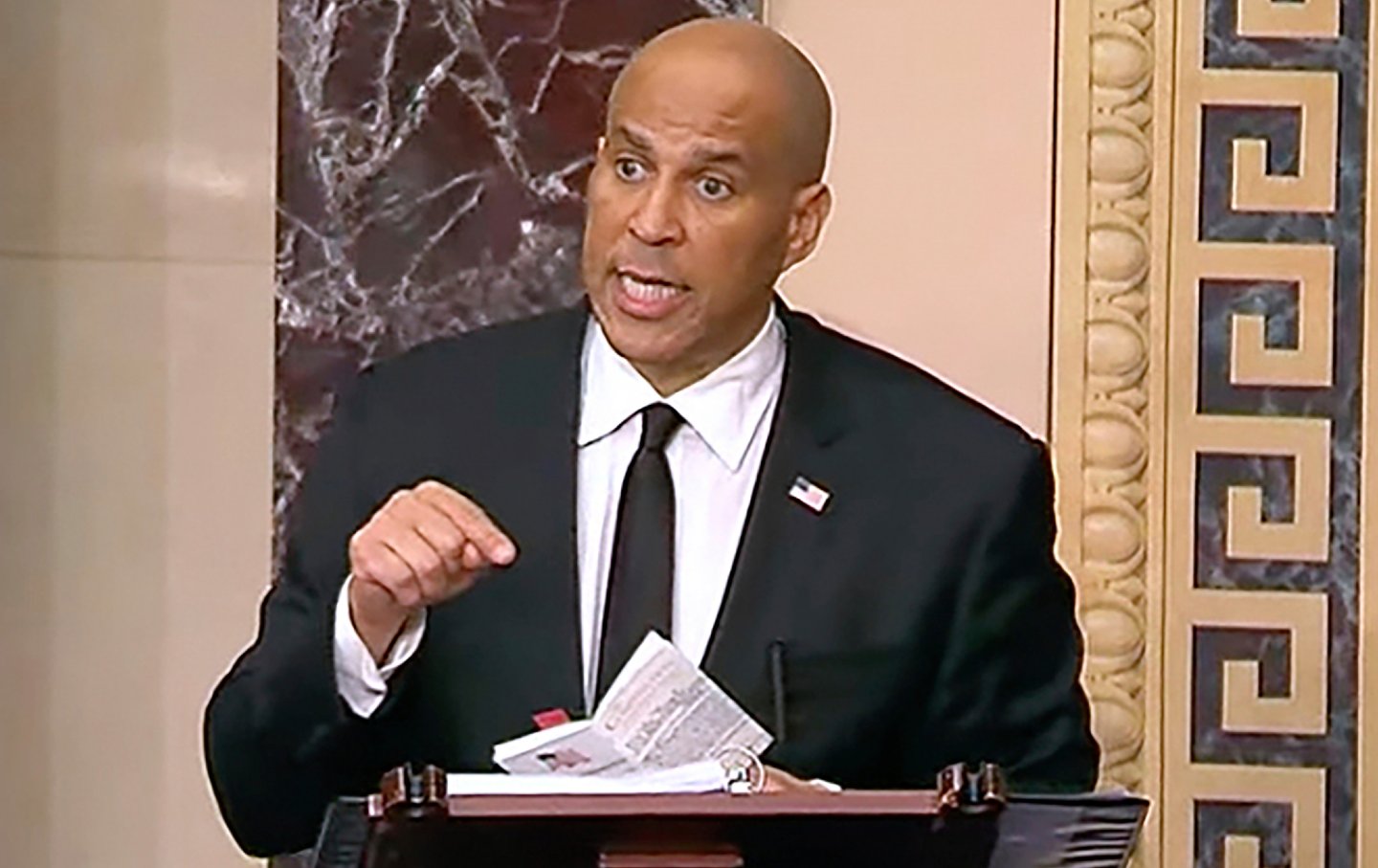Masks Are a Symbol of Solidarity. Don’t Let Democrats Take Them Away.
Mask bans are ostensibly about public safety. The result would be disastrous for public health—but it goes beyond that, too.
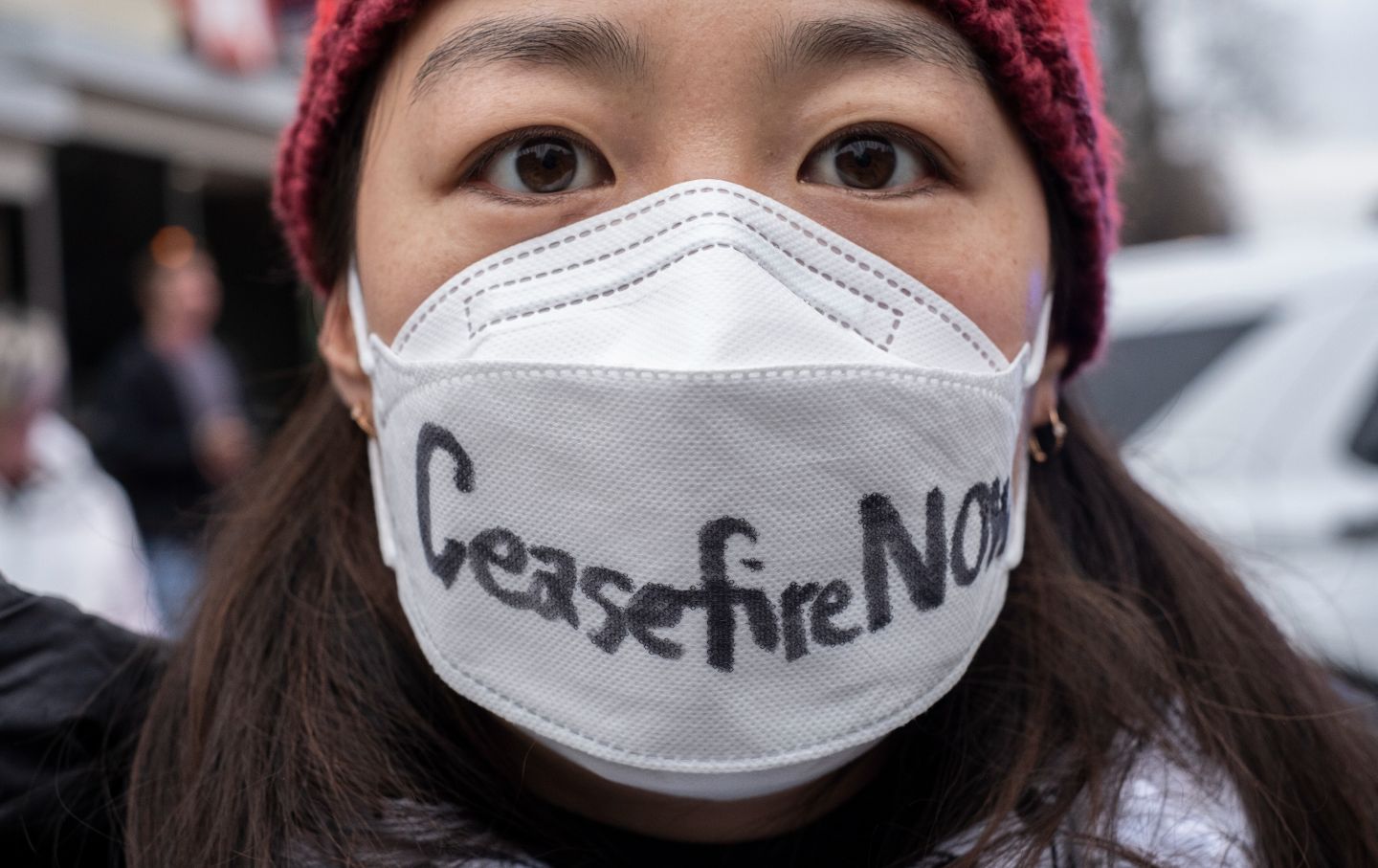
In recent weeks, state and local governments have been ramping up their attempts to criminalize masking in public space. What began as a largely Republican-led effort to simultaneously suppress an anti-genocide protest movement while undermining pandemic interventions has quickly become a bipartisan crusade. Legislators in New York from both major parties have introduced multiple anti-mask bills, backed by the public support of Governor Kathy Hochul, Attorney General Letitia James, and New York City Mayor Eric Adams—all Democrats. Just this week, Los Angeles Mayor Karen Bass—also a Democrat— announced that the city is exploring a mask ban of its own.
Let’s get the obvious part out of the way: Mask bans endanger us all. While the Biden administration may have prematurely ended the Covid-19 Public Health Emergency last year, the pandemic is far from over, as we have explained at length on our podcast Death Panel. No matter what politicians say to justify their support for mask bans, criminalizing masking in any context will increase the spread of disease and further restrict disabled and immunocompromised people’s right to public space.
In addition to shrouding mask bans in vague calls for “public safety,” Democrats have thus far attempted to defend their embrace of anti-mask legislation by pretending mask bans would have no effect on public health. New York state Senator Jim Skoufis, a Democrat and the sponsor of one of the anti-mask bills, recently told reporters at the New York Post that lawmakers would “make sure everyone who is immunocompromised or has a religious reason can continue to wear a mask.” But the language of the bill Skoufis sponsors specifies that masking for health reasons would be considered legal only “during a declared public health emergency,” and much like the federal emergency, New York State’s Covid-19 emergency declaration has expired. Governor Hochul has added that lawmakers intend to address exemptions for people who wear masks for what she called “legitimate reasons.” Those “reasons” are implied to include masking for personal and community health but, as many have pointed out, any anti-mask law would mean that it’s up to police to enforce that distinction, which would obviously play out prejudicially. But no one should have to justify wearing a mask. Particularly during a pandemic.
If we want to pretend that the US has learned the “lessons” of Covid-19, we can start by resisting any and all attempts to criminalize masking. The last few years should have given us an opportunity to make masking a widely accepted behavior, not something that should be judged on a basis of whose masking is “legitimate” and whose is not.
Instead, politicians in New York and elsewhere have positioned the mask ban not in relation to public health but over “concerns that such coverings could shield the identities of those committing hate crimes,” as The New York Times put it. “Cowards hide their face…. people have hid under the guise of wearing a mask for Covid to commit criminal acts and vile acts,” Mayor Adams said in a recent radio interview. Governor Hochul was more explicit in a recent CNN appearance: “You’re sitting on a subway train and someone puts on a mask…you don’t know if they’re going to be committing a crime, [if] they’re going to have a gun.” As though seeing other people masking on the New York City subway has not been a daily occurrence for the last four years.
As ridiculous as these statements sound, the rhetoric serves a singular purpose: to make it clear that politicians across the political spectrum can and will discriminate against anyone engaged in actions or speech toward Palestinian liberation. In the United States, that means targeting nearly the entirety of the left, which has loudly closed ranks in defense of Palestine since the genocide escalated last fall. It is a campaign to crush dissent, no matter the cost.
Politicians like Hochul and Adams have been able to get away with this kind of discrimination in part because shockingly few media outlets have bothered to question their assertion that there are in fact two distinct groups of people here: those masking for “health reasons,” and those masking to “protect their identities.”
When Palestine solidarity encampments emerged on college campuses as well as other public spaces this spring, writers at outlets like The New York Times and The Guardian scratched their heads over why, exactly, the face of these encampments was an N95. Masked protesters were treated as an anachronism. The Times assumed that students involved in the actions wore masks simply because they “protested for the first time after the murder of George Floyd in 2020, when Covid mask mandates were still in place.” The Guardian concluded that the masks were there to guard from “personal and professional repercussions,” even as the writer admitted that protesters he spoke to also cited Covid-19. The New York Post drew its own connection between encampments and Covid. One Post headline from April read, “Covid shutdowns, isolation to blame for pro-Palestine protests, experts say.”
To be clear, many people masking at protests and at solidarity encampments have done so to protect their identities. And in an era of mass surveillance, with a low bar for police to deploy arrests and violence against protesters, the utility of masking extends beyond public health. But at the same time, the media’s portrayal of protesters as too scared to stand up for their beliefs with their identities on display—playing into Adams’s “cowards” rhetoric—misses a much bigger development.
For parts of the left, masks have become a symbol of solidarity. First, over Covid-19 itself: Wearing masks is a message that we will not abandon each other the way that the Biden administration has. Second, masking has become a symbol of solidarity between disability justice and the struggle for a free Palestine, and a commitment to ensuring that disabled and immunocompromised people are supported within left movements. As Chicago Alliance Against Racist and Political Repression organizer Olan Mijana told Semafor in April, wearing masks at protests is about “communicating that we deny the Biden administration’s narrative about Covid—that it’s no longer a big deal…. It’s about collective safety, and it’s also about connecting this Covid neglect to the very issues that we’re marching on the DNC for.”
In this way, the reason people are masking at protests and the reason mask bans are emerging now, is the same. In our work on Death Panel, we have spent years chronicling federal, state, and local governments’ responses to Covid-19. In early 2021, when it became clear that the newly formed Biden administration was likely to pursue an end to the pandemic through social and political maneuvering, rather than through any sort of epidemiological milestone, we coined a phrase for this, along with our collaborator Phil Rocco: “The sociological production of the end of the pandemic.” What we’re seeing now could only be possible in the era of that premature end. We have barreled so far forward into pandemic denial that the Democratic Party has gone from being the party of mask mandates to the party of mask bans in just over four years.
But this socially constructed end to the pandemic has also found its shadow in the protesters who refuse to leave one another behind, and who recognize that Covid-19 and the genocide in Palestine are not crises happening independently of each other. The pandemic persists in Gaza, as it does in the United States, whether bombs are dropping or not.
Our friend in Gaza, G, told us on Death Panel in January: “It can be hard to get people to care about Covid when there are bombings all day and night, snipers, drones, block by block warfare. But all day long, I am making masks out of whatever materials I can find, and handing them out.… And while many people say that I am crazy, many are also learning Covid is still an ongoing pandemic because of calls to mask at protests in solidarity with Palestine happening in the Global North.”
This show of solidarity is threatening to politicians like Hochul and Adams because it forces the overlap between these movements into public view. Whether they understand why protesters have been wearing masks or not, they are left asking themselves whether the people fighting for a free Palestine are the same people who have been pressuring them over their rush to put the pandemic in the rearview. Not all, but many, of those people, are the same people. Democrats want to break that solidarity. And we can’t let them.
Popular
“swipe left below to view more authors”Swipe →Masks did not become a symbol of solidarity overnight. It’s taken countless conversations between organizers, and among the left, to get to this point. This is quiet work that is rarely celebrated, but that can easily be seen simply by remembering how many bare faces we saw at the march on Washington for Gaza in November, mere months before media outlets would be forced to wonder aloud why so many of us cover our faces.
There is still much work to be done. But if you ever stopped masking, there has rarely been a better time to start again. Mask up and show your solidarity. Eric Adams will hate it.

